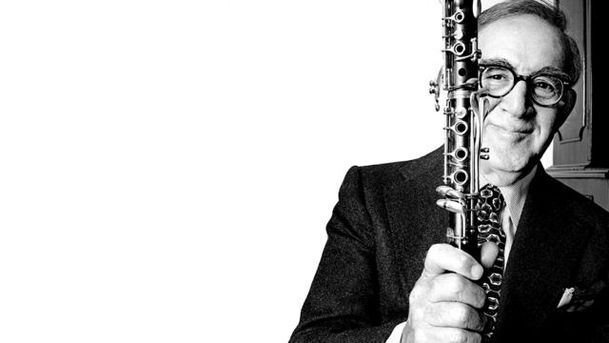Benny Goodman: King of Swing - Episode 5

Curtis Stigers remembers the clarinettist and bandleader Benny Goodman in his centenary year. Episode five picks up the story at the turn of the 40s, when great musicians like trumpeter Cootie Williams are playing in Benny Goodman's band. But the personnel changes continue and it isn't just musicians, but also vocalists who come and go. Helen Forrest was a particularly good singer but, despite making some great recordings with the band she didn't enjoy her stay and, when she eventually quits the band, a young blonde by the name of Peggy Lee is given a try. She makes a very tentative start, but Benny, who was turning into a serial hirer-and-firer, for some reason shows a little patience. By 1942 the World War reaches America. On 2nd March guitarist Charlie Christian, who's been ailing for some time, dies of tuberculosis at the age of only 25. That same month Benny marries John Hammond's sister Alice but the war leaves its mark on the Goodman family, with the death of Benny's younger brother Jerome. In the middle of all this, Benny himself (being still only 32), is called up for military service but he's disqualified by his chronic back condition. His wartime audiences remain huge and are further boosted when Peggy Lee comes good with the big hit, Why Don't You Do Right?' Benny and his band accompany Frank Sinatra in New York and Benny notices the signs that singers will take over and the big bands fade away. As Loren Schoenberg recalls: "What's forgotten is the band accompanying him [Sinatra] was Benny Goodman's band and there was a famous story of those days where Sinatra came out on the very first show, the audience went berserk and Goodman, without realising that the mike was still on, turned to the band and said 'What the **** was that?'" Benny is also by now a fairly well-established concert artist in the classical idiom and he confirms this by commissioning a trio called Contrasts from composer Bela Bartok. His fans tolerate the classical excursions, but what they don't expect is for Benny to abandon swing music altogether. In the spring of 1944, with his band back at the top of all the major polls, he dissolves it; pleading a desire to be "a family man" (his daughter Rachel had been born the year before). When he reforms the band, Benny finds both the public and the critics turning against him and, with all the usual comings and goings of players, it's amazing that the post-war Benny Goodman Orchestra retains any sort of continuity. As modern jazz and singers overtake swing, it isn't easy to see where Benny will go next.